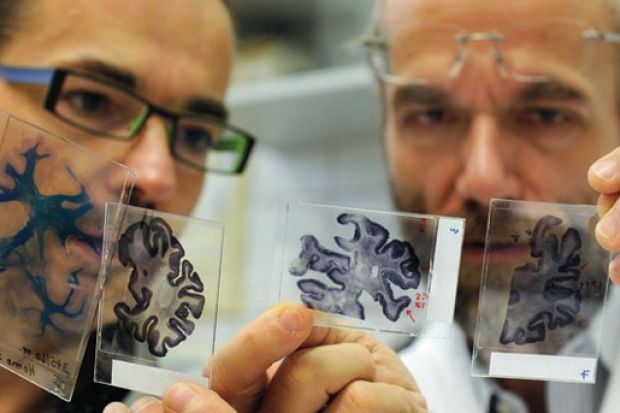The government is making a serious error in pursuing the impact element of the research excellence framework and risks a resulting "misallocation" of science funding, a former Labour science minister has warned.
Lord Sainsbury of Turville, who this weekend bids to become the next chancellor of the University of Cambridge, said that to emphasise impact was "totally to misunderstand" the point of basic research.
In an interview with Times Higher Education ahead of the election for chancellor, which takes place on 14 and 15 October, he said: "I think (the coalition is) making a mistake - which I have to say tended to be made by the Labour Party - which is to think the way you get innovation is (by) putting a heavy emphasis on impact. This is totally to misunderstand what you should be doing."
The peer said it made no sense to ask people doing basic research to say exactly what the impact of their work would be "because usually you don't know".
Lord Sainsbury cited the example of neuroscience funding being cut while investment in ageing research was increased. In his opinion, the former was more likely to pioneer breakthroughs in tackling illnesses such as Alzheimer's disease.
"It will come from neuroscience, not because anyone is saying, 'look, measure the impact of this'; it will come because neuroscience is ... beginning to go through a very exciting period of basic research," he said.
He also warned against any artificial attempt to concentrate research in a few universities. Instead, he advised that the research councils should be left alone to fund the best research projects.
"I suspect if you just let that happen naturally you may get a bit more concentration, but I don't think you have to steer it in any way," he said.
Lord Sainsbury said politicians should be thinking more about how to "nurture universities rather than...laying lots of society's ills at their feet", claiming it was "nonsense" to suggest that universities such as Cambridge discriminated against state school pupils.
An alumnus of King's College, Cambridge, Lord Sainsbury said he was "not quite certain" why his rivals - actor Brian Blessed, lawyer Michael Mansfield and local shopkeeper Abdul Arain - wanted to be chancellor of the institution, given that they had not "shown any interest in education, universities or Cambridge as far as one can tell from their careers".
Asked about the nomination of Mr Arain - who opposes the construction of a new Sainsbury's store near his grocery in Cambridge - Lord Sainsbury, the former chairman of the supermarket giant, said: "There are obviously very few planning applications that are not opposed by the people that have a large share of the local market."
Register to continue
Why register?
- Registration is free and only takes a moment
- Once registered, you can read 3 articles a month
- Sign up for our newsletter
Subscribe
Or subscribe for unlimited access to:
- Unlimited access to news, views, insights & reviews
- Digital editions
- Digital access to THE’s university and college rankings analysis
Already registered or a current subscriber? Login
